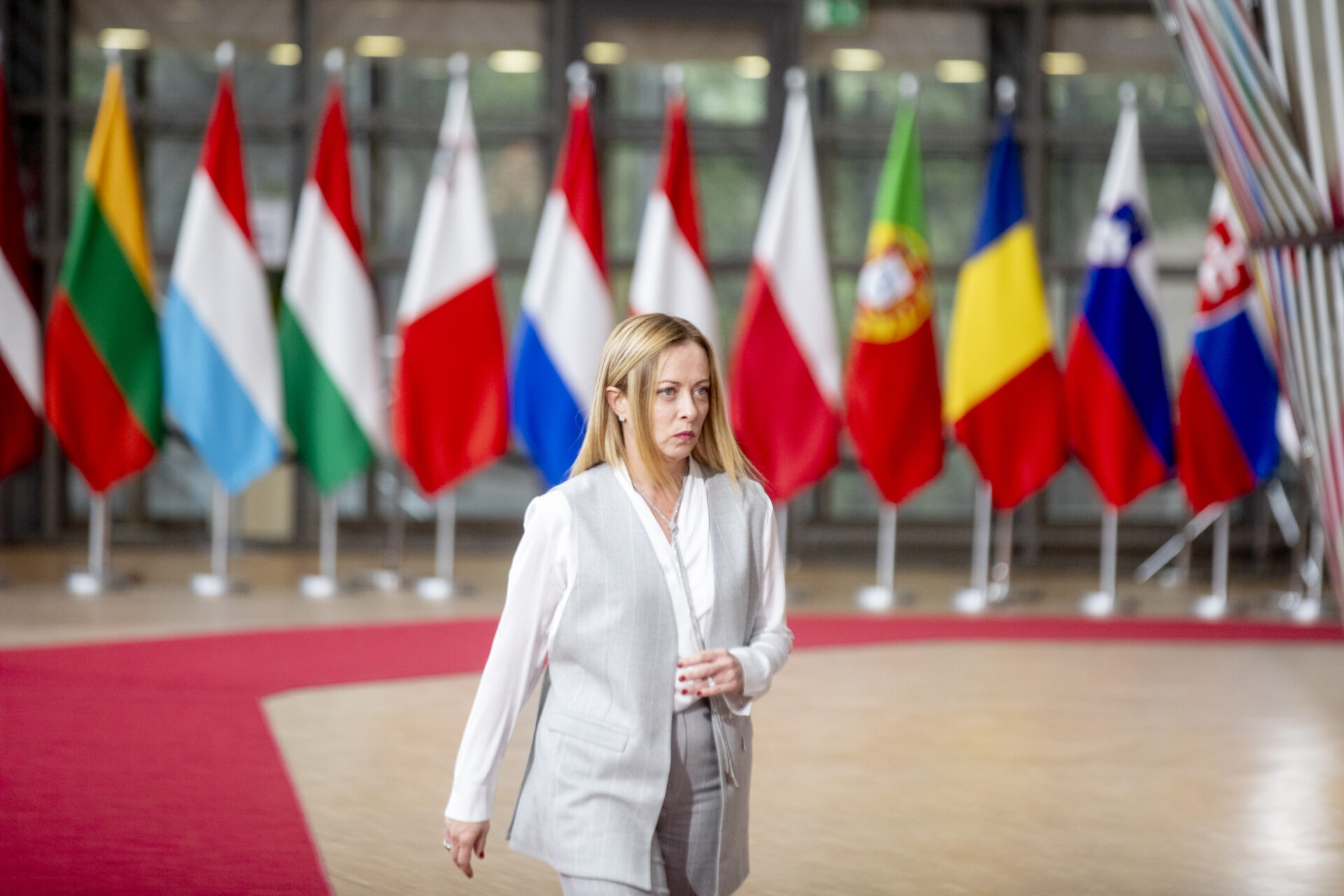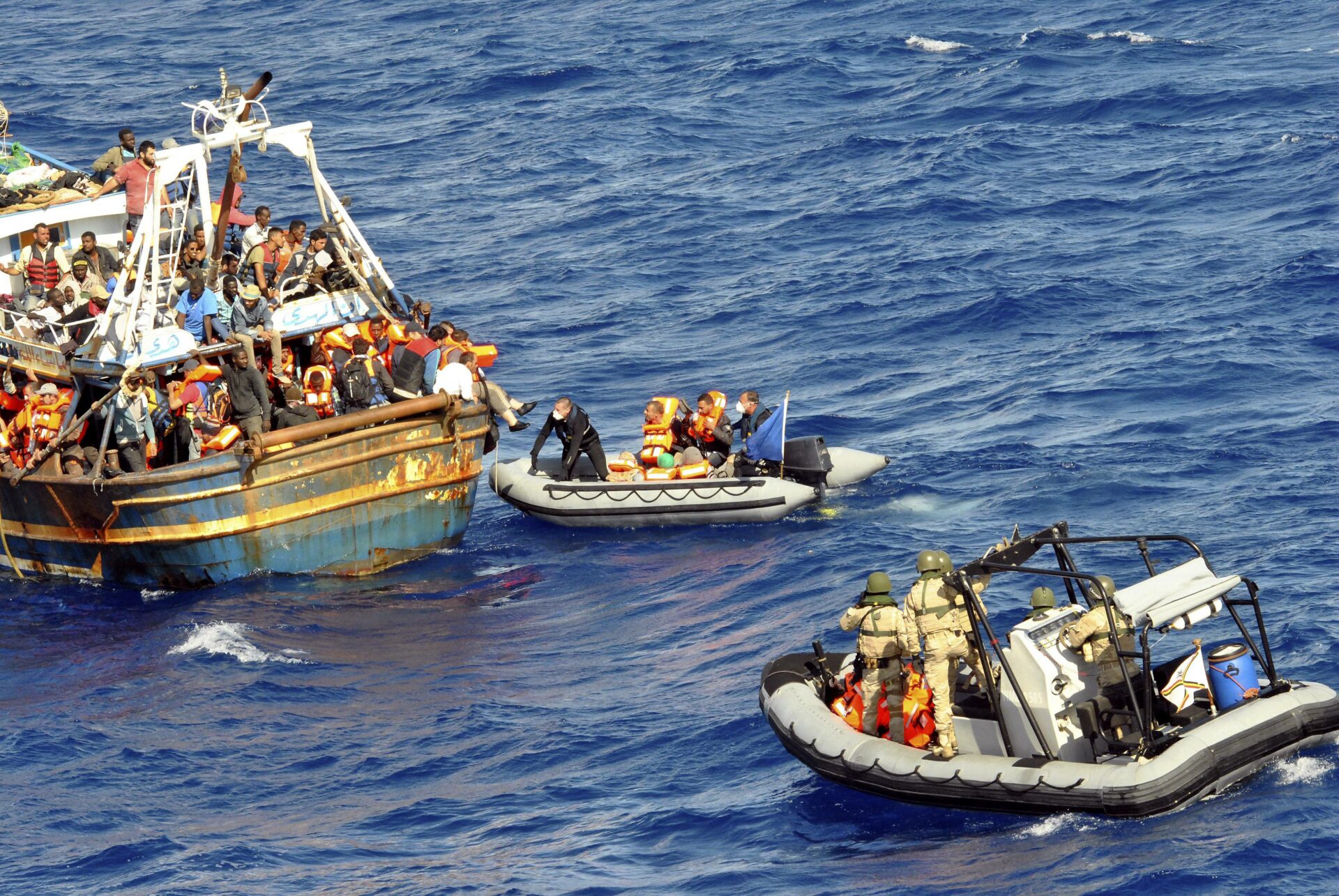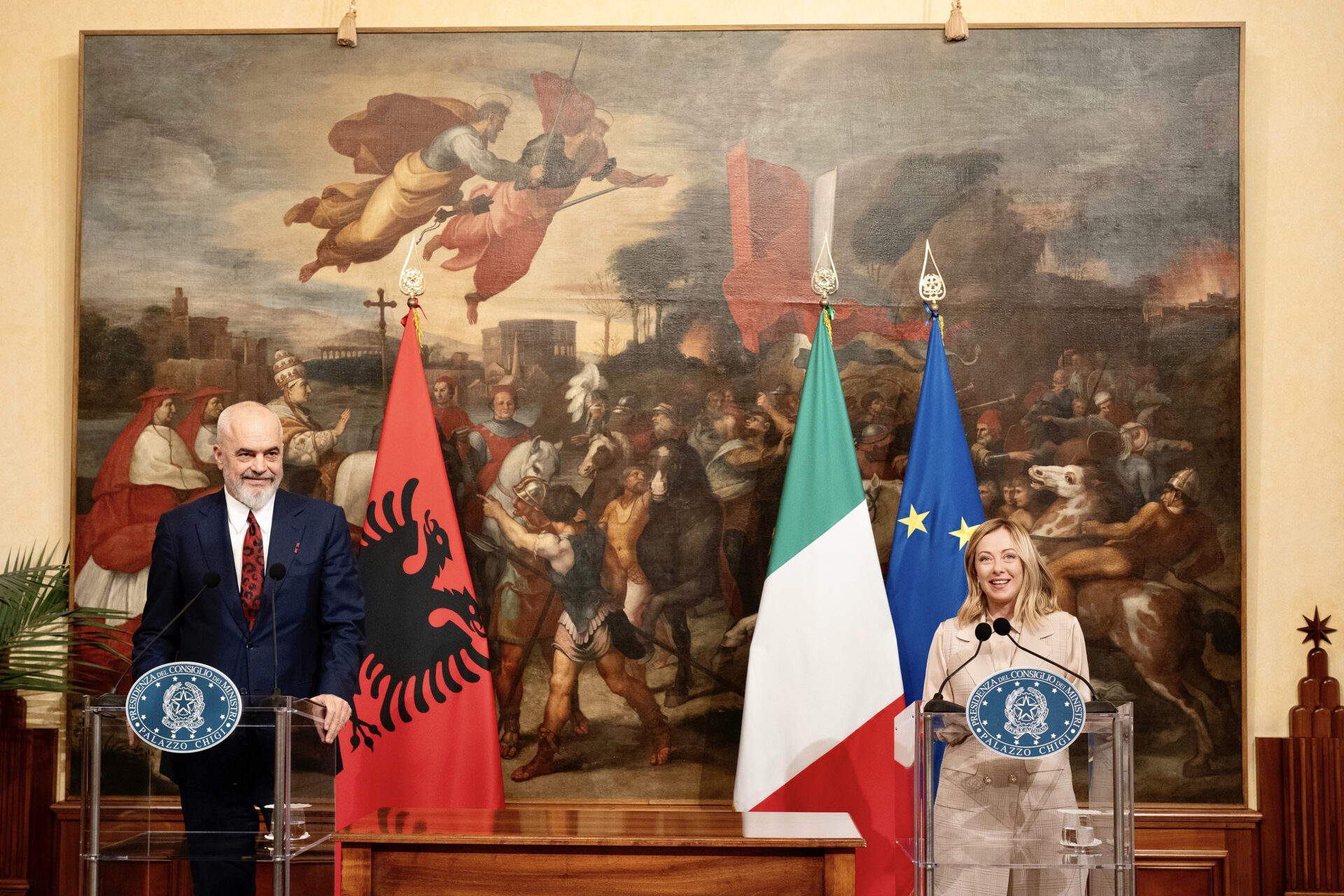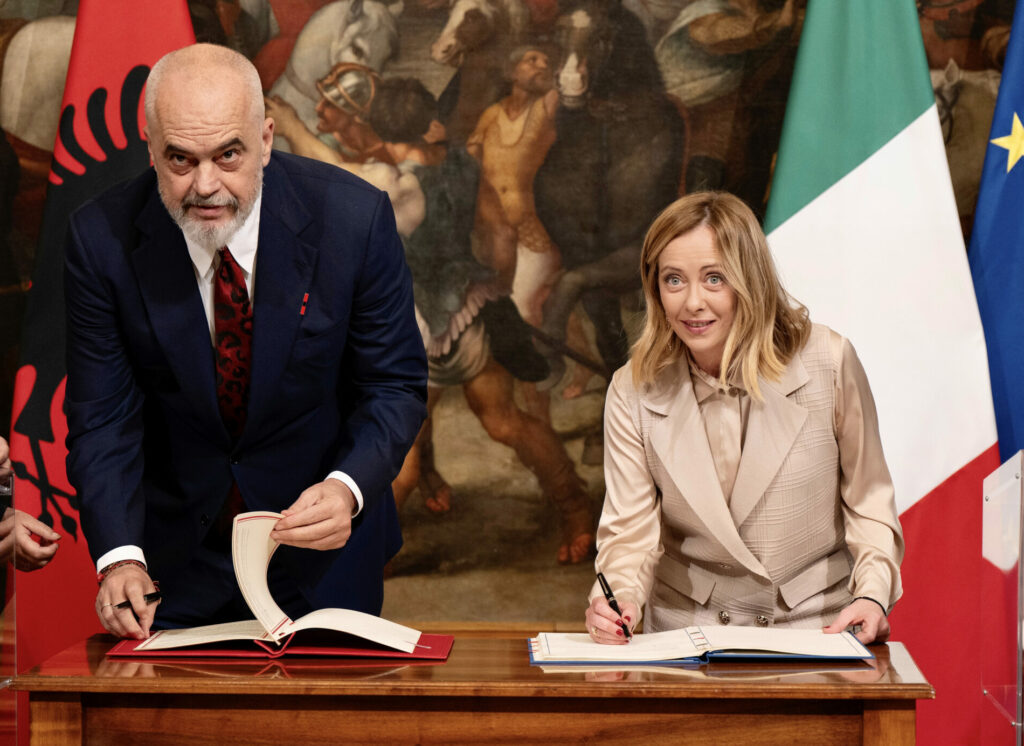Far-right Italian Prime Minister Giorgia Meloni surprised Brussels on Tuesday when she announced a new bilateral migration deal with Albania, which would see two Italian-managed asylum centres opened to process migrants rescued at sea.
The agreement consists of Albania giving Italy the possibility to use Albanian territory to establish, at its own expense and under its own jurisdiction, two facilities where centres for the management of migrants can be set up.
The two Italian-run centres could be operational by the spring of next year and will be able to accommodate up to 3,000 migrants a month, or about 36,000 a year, according to current expectations. The agreement does not cover "minors, pregnant women and vulnerable persons," Meloni specified in the press conference with Albanian Prime Minister Edi Rama.
In exchange for giving away an area of its sovereign territory, Meloni has promised to lend Italy’s support to Albania’s EU accession aspirations.

Prime Minister Giorgia Meloni arriving in Brussels ahead of a European Council summit, Thursday 26 October 2023. Credit: Belga / Hatim Kaghat
However, the deal appears to have blindsided European officials who, in a press conference on Tuesday, did not confirm whether they had received prior warning of the deal or know much about it.
"We are in contact with the Italian authorities because we need to see the details. We're asking for detailed information on this kind of arrangement," a European Commission spokesperson said on Tuesday afternoon. While stressing that Member States are not as such "precluded" from allowing third countries to process asylum cases, it should be done in accordance with EU law.
Confused Brussels
With the European Commission short on details, experts have been asking questions about the many different scenarios under which the deal would be workable under EU law.
"EU law would apply because the centres to be opened on Albanian territory would be subject to Italian jurisdiction," Alberto-Horst Neidhardt, a Senior Policy Analyst and the Head of European Migration programme at the European Policy Centre (EPC), told The Brussels Times.
On the question of whether people can be rescued at sea, brought to land in Italy and then lawfully transferred to Albania, Neidhardt does not believe this complies with EU law. "In my reading, the answer is no. They could not be forcibly removed from the Italian territory, where their application for international protection would have to be registered and processed if they first set foot there."

Credit: Belga
Another question is what would happen if Italian authorities intercepted people in international waters and took them directly to Albanian territory without entering Italian waters.
Neidhardt stresses that EU law would continue to apply in the management of migrants, as per the agreement, but "it is not clear whether the transfer to Albania would be unlawful in this second scenario as well, and under what procedures their asylum claims would be processed."
From Rwanda to Tunisia
The deal comes amid a series of attempts by European countries to externalise their migration management; parallels have been drawn to both the UK-Rwanda and EU-Tunisia deals. Denmark has also attempted to send migrants to Rwanda, while Germany said on Tuesday it was also considering a UK-style plan on processing asylum abroad.
"This deal is certainly part of a consolidated trend of externalisation. It is meant to shift responsibilities outside the EU, due to the weaknesses in the Common European Asylum System and the politicisation of migration," Neidhardt said.
However, he stressed that the new agreement should not be confused with the UK-Rwanda deal, in which case it would be Rwandan authorities processing claims, including hosting and returning asylum seekers.

Albania Prime Minister Edil Rama and Italian Prime Minister Giorgia Meloni announced the deal on Tuesday 8 November 2023. Credit: Governo Italiano
"Under the deal with Albania, Italian authorities would be instead charged with processing claims and take back anybody who qualifies for protection or is not returned," Neidhardt explains. Either way, the UK-Rwanda deal remains blocked by the courts and no deportations have yet occurred.
The new deal is also different to the EU-Tunisia Memorandum of Understanding – another agreement which was championed by Meloni and Commission President Ursula von der Leyen, which Neidhardt says seeks to ensure the return of Tunisian nationals who fail to qualify for asylum.
Related News
- 'Dirty deal': EU Migration Pact brings eight years of political deadlock to a close
- Italy accused of deporting refugees to Greece on commercial ships
- 'Unprecedented': Tunisia refuses entry to MEPs months after EU migration deal
Italy has seen 145,000 migrants arrive since January, up from 88,000 in the same period last year. Rome appealed for solidarity from EU partners and often claims it is left alone.
"Considering all this," Neidhardt continues, "I would see this as nothing more than a political stunt by the Italian Government which was elected to stop immigration and instead saw an increase in irregular arrivals."

